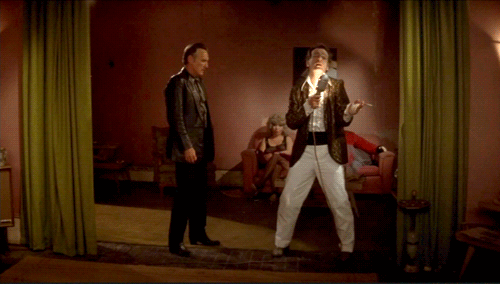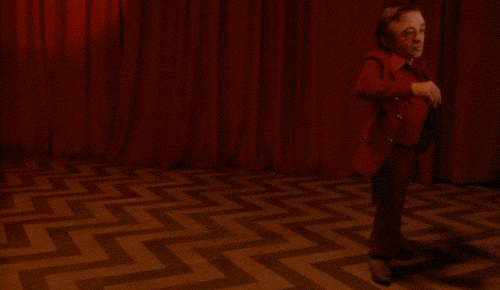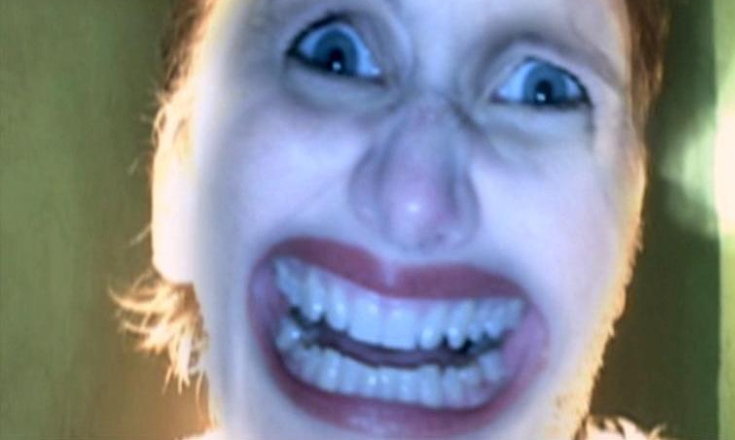Posted by Jinnistan  2/02/2025 12:18 am | #21 |
And I don't even know what's going on with this 'Yanka Industries'. First they block Lynch's 3 hour masterclass lecture video, then they substituted briefly a 15 minute version, and now they yanked it entirely.
Thankfully we have options. For now.
Posted by Jinnistan  2/02/2025 12:56 am | #22 |

"That's a human ear alright."
Does it seem stranger than the film itself that Blue Velvet, David Lynch's bedrock of demonic Americana dissociation, would now look rather quaint on the other end of his 30 year exploration of its phantoms and corruptions? Kind of like how Pabst is the starter beer for ironic hipsters not yet in on the joke? Obviously, Blue Velvet stands strong alone on its still visceral edge, Lynch's oppressive tension barely buffered by the bizarre. But perhaps it's a more explicit mission statement than what would entail his soon-to-sprawl saga.
Posted by Jinnistan  2/02/2025 1:45 am | #23 |

To settle deeper into the derangements of the American dream's lust for drama - not in any particularly political sense, but purely domestic, intimate - Lynch finds his new ear in Laura Palmer, a mythic American cover girl, a Miss Macguffin, a fulcrum to leverage his investigation of various hidden insidious designs as an almost anti-Hitchcockian solvent of criminal entertainment psychology. How successful Lynch managed this corrosive soap opera depends on a selective curation of the show's second season specifically. (If you see Billy Zane, you've probably gone too far.) But a careful culling of this season, an unfortunate predicament for a cinema-steeped filmmaker, can lead to a transcendental greatness. And this rough journey is further complicated by its ill-spurned prequel - Fire Walk With Me, a secretly salvic absolution - where Lynch decides to reclaim Miss Macguffin as his venerated black swan, crossing mediums like so many defiant neutrino wands, and only coming back 25 years later to sort it all out, except of course doing exactly the opposite of that anyway and only making it much more terrible and devastating and what year even is this.
For better or for worse, the Twin Peaks saga will be David Lynch's magnum opus, the infrastructure of his aesthetic imagination. Films like Blue Velvet and Mulholland Dr may be better and more conventionally designated masterpieces. But nothing in David Lynch's universe escapes the quicksand of the "garmonbozia", both essence and antagonist in all of Lynch's work.
Posted by Jinnistan  2/02/2025 1:54 am | #24 |
And for those patient enough, this remains the most exhaustive and satisfying of the Twin Peaks exegeses.
Posted by Jinnistan  2/24/2025 12:05 am | #25 |

"The whole world is wild at heart and weird on top."
People get the wrong idea when I call this the most "fun" David Lynch film, because it also happens to take some very dark and disturbing turns and sometimes people think that, like Deliverance or something, I may be into it for similarly dark or twisted reasons. Part of this is the problem with David Lynch's singular sense of humor, sense of twisted whimsy, which might be more palatable on network TV, but is eerily unleashed here. Even in Twin Peaks, I've gotten side-eyes for gut-busting when Ray Wise dives onto his daughter's casket. It's a strange marriage of pathos and absurdity. Wild At Heart has a number of such scenes, which are reflexively ridiculous but turns so brutal or tragic that you feel sinister for initially laughing. "Buffalo hunting? What the fuck does that mean?" Good question. The whole film is full of straight-faced surrealism that seems whimsically silly until it turns into shark dark nightmares, and the pitched whiplash between these poles is delirious. The film is packed with possibly Lynch's most malignant menagerie - Santos, Bobby Peru, Mr. Reindeer, Jingle Dale, the Durango sisters, and of course the wicked-est witch Marietta (an electrifying Diane Ladd), all circling obscurely around Lula's unnamed father, whose murder her lover, Sailor, might have witnessed, while Harry Dean Stanton makes for our most appropriate effigy. Lynch is completely uninterested in what all of these insidious deviants are involved with, whatever drug stuff or voodoo sex cult shenanigans. All he wants to do is offer some stolen glimpses into a thoroughly rotten criminal carcass and dare us all to believe in tender love in the face of its madness.
Posted by Jinnistan  2/24/2025 12:26 am | #26 |
I also just realized, in an interesting bit of Lynchian synchronicity, that Anthony Perkins named his two sons Oz and Elvis, the twin child allusions in Wild At Heart.
Posted by Jinnistan  2/24/2025 12:56 am | #27 |

I have the theory that Patricia Arquette's Renee/Alice is the true protagonist of Lost Highway, that it was her incentive to Shady Blake (my preferred name for the "mystery man") to kill Dick Laurent through manipulating her bifurcated husband/boyfriend, and my evidence for this theory is that the picture in Laurent's house which shows both Renee and Alice together is replaced after his death with a picture of a single Patricia Arquette. She is the agent who set this wheel in motion, and her men are casualties for her revenge against Laurent's abuse. And I've noted that the only instance where we see Renee's supposed corpse, in grainy CCTV, she resembles the decrepit body of Marilyn Manson, who we see collapse in blood during the sex ritual video, a possible surrogate to tie up loose ends. Whether any of this has anything to do at all with Lynch's intentions is beyond me, but it does strike a similar abuse-revenge absolution as we saw with Laura Palmer in Twin Peaks.
Posted by Jinnistan  2/26/2025 11:33 pm | #28 |

Some people see this as the shaggy dog in David Lynch's kennel, but it makes a lot more sense when you think beneath the surface. First of all, what would be weirder, after all, than for Lynch to take a respite from a decade of his surrealist psychological and vaguely supernatural noirs to make a deeply sincere, heartily stoic and sentimental film that is as grounded in God's red earth as the seeds and roots of its literally corny grains. It shouldn't be a surprise, because anyone who can see past the various layers of veils of evil which Lynch laces like cobwebs in his garmanbozia soup, Lynch himself has always been a clearly, profoundly moral man, with a sharp respect for the rustic and authentic, all of the impulses which fuel his frightening disdain for the artificial labyrinths of Hollywood decadence that he exorcizes elsewhere. It's baffling that anyone could think he was actually into all of that gaudy and garish grotesquerie, rather than warning us about all of that. Instead, The Straight Story is just that, unadulterated humility and grace.
Posted by Jinnistan  2/27/2025 12:05 am | #29 |

And then back to the artifice. This hollow cowboy here, little more than a placard in the Hollywood House of Horrors, like Kafka's doorkeeper who keeps attendents in complicity. Given its depictions through Lost Highway, Mulholland Dr. and Inland Empire, David Lynch does not seem to agree with the L.A. mythos, and takes few mercies on those either pimping these myths or those attempting to seduce them. Muholland Dr. is perhaps the most ("clearest" isn't the right word) compact illustration of the desperation behind the dream machine. Words like "incarnation" and "incantation" start to blur into delusion. The terror is mundane (a diner dumpster), and glamour is thin as moonshine. It serves as almost a pre-emptive Sunset Boulevard, where no one is aware that they are not at all ready for their close up, until it's too late.
Posted by Jinnistan  2/27/2025 12:28 am | #30 |

"Is there murder in your film?"
Rewatching Inland Empire settled a couple of outstanding scores. First is to confirm its place in the thematic arc of the larger Lynchian oeuvre, but to also reinforce my initial reaction that a lot of this is very on-the-nose, a bit too much for an ambiguous auteur like Lynch. It does inflate and expand the psychological dissociations of his work since Blue Velvet. We get some mystical Polish polish on the ball. We get Rabbits, bless 'em. But overwhelmingly we get the kind of parasocial convolution which existed between actress and ambition in Mulholland Dr. pushed outside of Hollywood's own corruptions into the Americana soil of the working-class audiences who are vicariously but psychologically grafting the dream machine mythos onto their own lives, showing a mutually parasitic tryst between industry and audience. While I still think that, despite several delicious sections, this is still the weakest of Lynch's major works, I find that it is strengthened considerably in the necessary context of what Lynch would later demonstrate about this parasitic media-audience relationship in Twin Peaks: The Return. Like a true genius artist, his works necessarily blur together as well.
Page:
